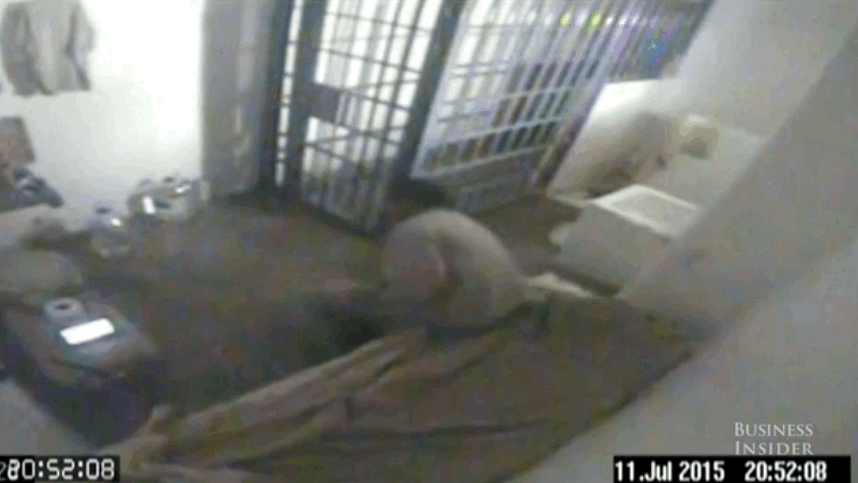Getty Images Mexico's Attorney General Arely Gomez shows a picture of Mexican drug kingpin Joaquin 'El Chapo' Guzman during a press conference held at the Secretaria de Gobernacion in Mexico City, on July 13, 2015.
Shortly after emerging from a custom-built, mile-long tunnel out of Mexico's maximum-security Altiplano prison, Guzmán may have boarded a private plane.
Earlier this month, Attorney General Arely Gómez revealed that of the numerous officials and persons arrested in relation to the escape, one "is a pilot who transported" the Sinaloa cartel boss after he broke out of prison.
Gómez's admission is reportedly the first time authorities have indicated that Guzmán's escape could have involved air travel. Authorities uncovered the role of the air transport though intercepts of calls made on public phones.
According to Mexican newspaper Excelsior, once Guzmán exited his tunnel, he boarded a van in Almoloya de Juárez, a town in Mexico state, to a "clandestine runway" in Querétaro state, which borders Mexico state to the north.

Christopher Woody/Business Insider
After Joaquin "El Chapo" Guzmán broke out of Altiplano prison, which is just 55 miles from Mexico City, he reportedly traveled north to Queretaro state, a nearly 100-mile trip, where he boarded an airplane.
"We already have all the mapping of those who participated," said Gómez. "It will be interesting for you to learn it (since) it is something truly amazing."
A 'code red' - three hours too late
Mexico National Security Commission/Amanda Macias/Business Insider Security footage of Sinaloa cartel kingpin Joaquín Guzmán.
What's more, it took almost three hours for prison staff to activate a "code red" to lock down the prison, notify the military, and close the nearby airport.

Reuters
The hole in El Chapo Guzmán's prison-cell shower, through which he escaped on the night of July 11.
A recent survey found that 71.2% of Mexicans have "little" or "no" confidence in their country's prisons.)
Door to door in the Golden Triangle

REUTERS/Stringer
Mexican Marines conduct a search operation to locate drug lord Joaquin
Despite reports that Guzmán headed south (and taunts from the social-media accounts purportedly belonging to his sons about his trips abroad), many, including top DEA officials, believe that Guzmán has returned to his native Sinaloa state, and the Mexican government is reportedly continuing its search there.
Residents of Cosalá, a town south of the Sinaloan capital of Culiacan, reported that marines in the area had told locals that, "we are looking for the 'Don,' a man of short stature who recently left prison."
Their inquiries have met with no success, possibly due to the affection many in the region have for Guzmán.
According to reports from local dailies, Mexican marines have carried out operations in 14 communities in what is known as the Golden Triangle, a principle drug-cultivation area where the states of Chihuahua, Sinaloa, and Durango converge in the Sierra Madre mountains.

Google Maps/Amanda Macias/Business Insider
Their searches, as well as detentions of residents, have reportedly damaged property and led to complaints from locals to human-rights organizations.
Guzmán escaped from prison in 2001, after a eight-year stint. It took authorities 13 years to track him down, eventually apprehending him in Mazatlan, in Sinaloa state, in 2014.

Thomson Reuters
In the increasingly unlikely event the Mexican government is able to track down Guzmán and his ilk ("Mexico's security apparatus is simply not ready to combat organized crime," a senior Mexican intelligence official said days after the escape) its reputation may not recover from the failures that allowed the escape and the missteps that have followed it.
The disgrace Guzmán has heaped upon the authorities may be to much to undo.
"El Chapo Guzmán has made the Mexican government look ridiculous," wrote commentator Héctor Aguilar Camín.